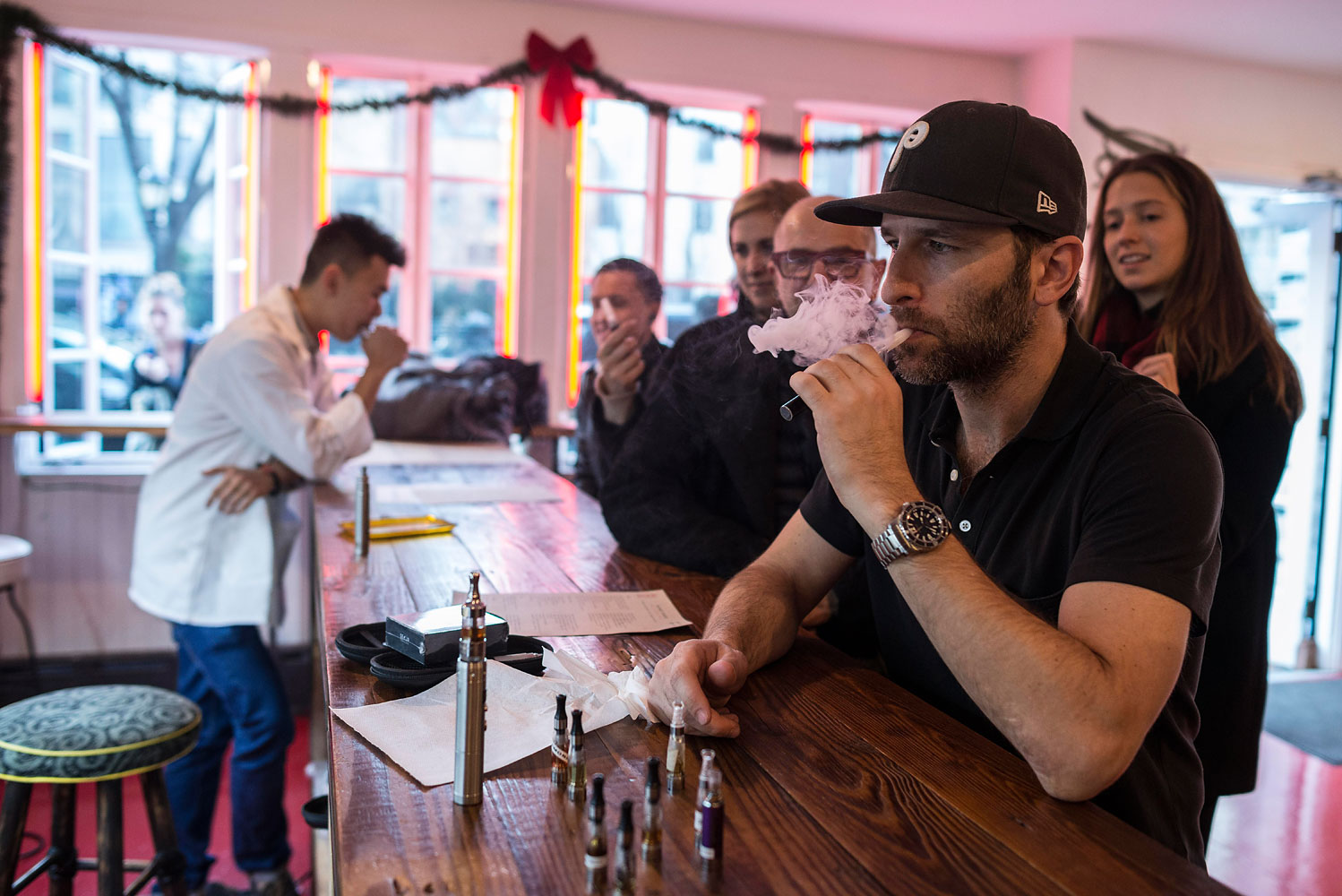
“It’s a great day,” says Christian Berkey, CEO of Johnson Creek, a leading maker of electronic cigarette liquid based in Wisconsin.
Berkey was referring to the FDA’s issuance Thursday of proposed federal regulation of electronic cigarettes, a nascent industry that has grown to nearly $2 billion a year in U.S. sales. The move extended the FDA’s authority to regulate new tobacco products, including electronic cigarettes, pipe tobacco, and hookah, among others.
The FDA will take comments from various stakeholders on the rules over the next 75 days, and it could be a year or more before the regulations take effect, but today’s proposed rules were a big step toward bringing the e-cig wild west under control. Currently, there are no federal rules governing e-cigarettes (though many states prohibit the sale to minors).
“People worried the regulations would be unreasonable and onerous,” says Berkey. “What we are seeing is they are not.” Upon seeing the FDA’s proposed rules today, the businesses are cheering. They see the proposal as a signal that the agency plans to take a business-friendly approach.
Craig Weiss, the President and CEO of NJOY, a popular e-cigarette maker, was even more ecstatic in a press statement: “By resisting calls to regulate ahead of – and indeed in opposition to – the science and data, today the FDA has brought NJOY a giant step closer to achieving its corporate mission of obsoleting cigarettes.”
“I would say that there were certain people that went into this thinking the FDA would be a foe — an irrational, illogical opponent to these devices,” says Miguel Martin, president of Logic Premium Electronic cigarettes, another top e-cigarette manufacturer, “[But] they’ve hit the ball right down the middle of the fairway. It is early, I might change opinion,but the original set up on the process seems extremely fair.”
The proposed regulations would ban the sale of e-cigarettes to minors and in vending machines where minors are allowed, require labels that list the ingredients and warn of the addictive properties of nicotine, and require companies to register new products with the FDA with a rigorous application process before they can put them on the market.
The FDA has not yet proposed to ban flavors, which some anti-smoking advocates say appeal to kids, nor have they banned internet sales or advertising of e-cigarettes. And the FDA has given electronic cigarette companies a two-year window after the regulations go into effect to keep their products on the market while they apply to register new products.
Currently, it is illegal for e-cigarette companies to make health claims that their products are healthier than regular cigarettes or can help people quit—a question that needs more thanks to a court decision ruling in 2009. But in today’s deeming regulations, the FDA opened a pathway for companies to make health claims by submitting supporting research to the FDA.
“I suspect that many companies are going to take a run at that,” says Martin.
The proposals are really just a starting point. Mitchell Zeller, the director of the Center for Tobacco Products at the FDA, called the proposed rules “foundational” today in a call with reporters, signaling that future regulations could ban or restrict things like internet sales, flavors, or advertising. And after the first two year grace period, e-cigarettes will still be subject to potentially long application processes for new products that might hurt business, say manufacturers.
“It’s not time for a victory lap,” says Martin. “A lot can change.”
More Must-Reads from TIME
- Donald Trump Is TIME's 2024 Person of the Year
- Why We Chose Trump as Person of the Year
- Is Intermittent Fasting Good or Bad for You?
- The 100 Must-Read Books of 2024
- The 20 Best Christmas TV Episodes
- Column: If Optimism Feels Ridiculous Now, Try Hope
- The Future of Climate Action Is Trade Policy
- Merle Bombardieri Is Helping People Make the Baby Decision
Contact us at letters@time.com